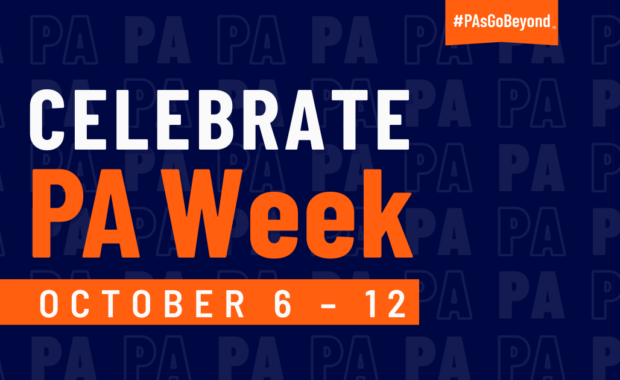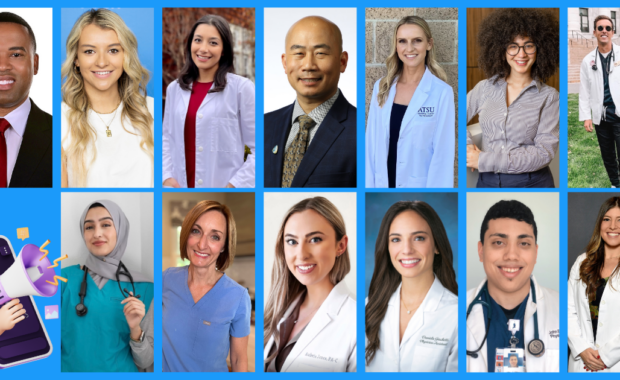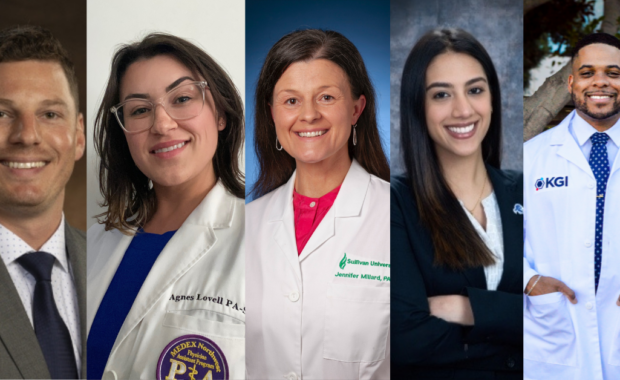Rural Medicine a Smooth Transition for Army PA
PA’s Military Experience Prepared Him Well
April 25, 2018
By Dave Andrews
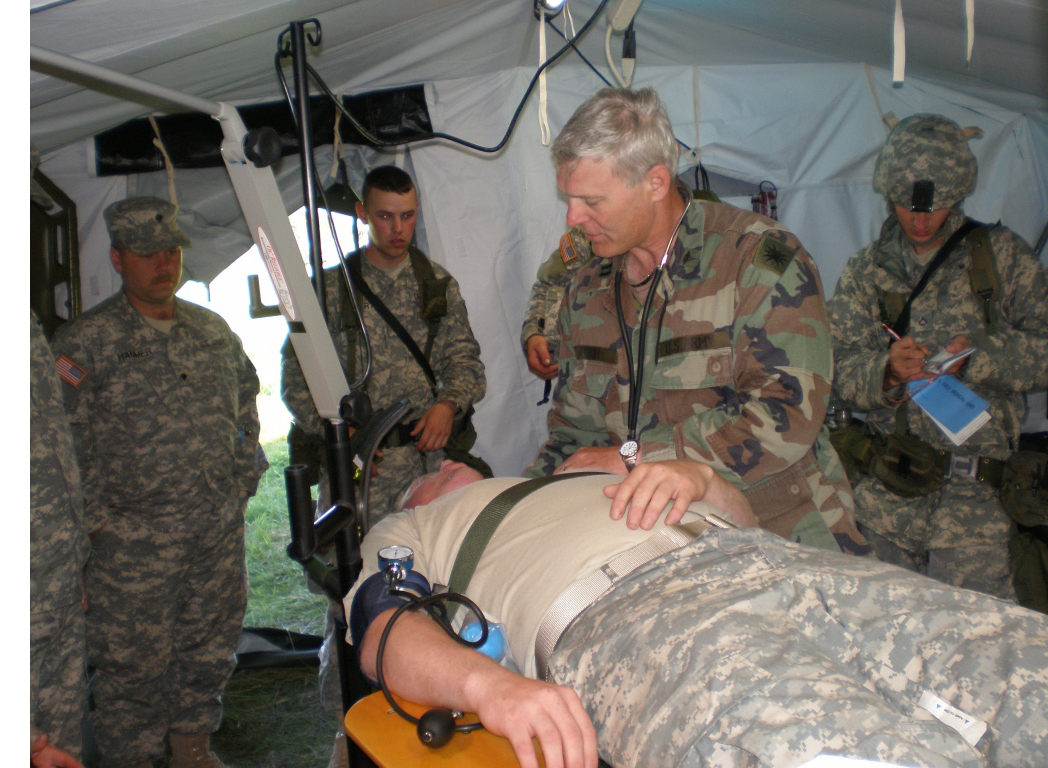 With a growing population of more than 72,000, Bismarck, North Dakota, is far bigger than what generally classifies as a “rural” town. But considering the wide spectrum of patient cases that come through the Bismarck Community Based Outpatient Clinic, the providers who work there often feel as though they are practicing rural medicine.
With a growing population of more than 72,000, Bismarck, North Dakota, is far bigger than what generally classifies as a “rural” town. But considering the wide spectrum of patient cases that come through the Bismarck Community Based Outpatient Clinic, the providers who work there often feel as though they are practicing rural medicine.
That’s largely because the clinic operates within the Veterans Health Administration. As one of the few VA healthcare facilities in the region, the clinic serves a variety of veterans, many of whom travel great distances to get there.
“Even though we’re in a bigger town, we function much like a rural clinic,” said Curt Kroh, PA-C, DFAAPA, who has worked at the clinic for more than 10 years. “Many of [our patients] don’t have insurance; they just have the VA. So they come from all over because for most of them, receiving care at a non-VA facility isn’t an option.”
Jump into the Deep End
Kroh is no stranger to the demanding nature of rural medicine. After graduating from the Army’s Interservice PA Program administered through the University of Nebraska, he worked for several years rotating within three primary care clinics in rural areas of central North Dakota.
During that time, he accepted such leadership roles as acting chief of staff and chief medical officer. Taking on those responsibilities in addition to handling a diverse caseload came naturally to Kroh, having previously served for several years as a combat medic in the Army National Guard.
“In the army, you quickly learn that anyone who walks through the door is going to become your patient,” he said. “You have to develop thorough patient assessment skills and—with minimal support—make the diagnosis without the luxury of having an extensive support team.”
Kroh says he’s profoundly grateful for the experiences he had in the army, which instilled strong leadership and quick thinking with minimal oversight. “You essentially jump into the deep end from the get-go,” he said.
The Perfect Fit
Before becoming a PA, Kroh had nearly 20 years of experience as an EMT. He loved the fast pace and broad scope of the work, so he was determined to pursue a career in primary care upon graduating from PA school.
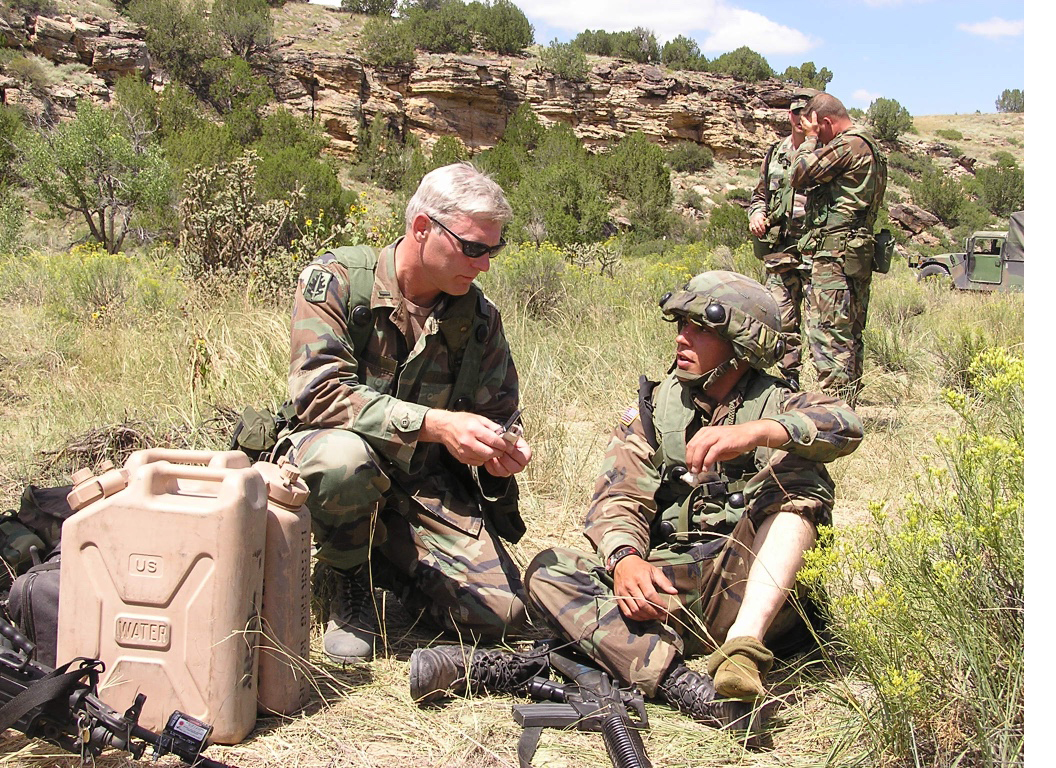 “It’s a thrill and a challenge in primary care to organize treatment plans involving multiple specialties and develop a successful care plan for the patient as a whole,” Kroh said. “And those who work in rural medicine often get to see the patient pretty much from the point of injury all the way through the healing process.”
“It’s a thrill and a challenge in primary care to organize treatment plans involving multiple specialties and develop a successful care plan for the patient as a whole,” Kroh said. “And those who work in rural medicine often get to see the patient pretty much from the point of injury all the way through the healing process.”
Though he’s no longer in a rural area, Kroh serves a unique patient population of veterans coming from a wide range of demographic backgrounds and geographic locations. Having military experience helps him and the other providers better understand and connect with their patients.
“There’s a special camaraderie that exists among those of us who have served in the military,” said PA Preston Schaffner, one of Kroh’s colleagues at the clinic and a fellow veteran.
Schaffner grew up in a rural area of North Dakota, which is another advantage when working at the clinic. “Having some familiarity of the locations where they’ve served or the communities where they live is really beneficial and allows us to connect through similar experiences.”
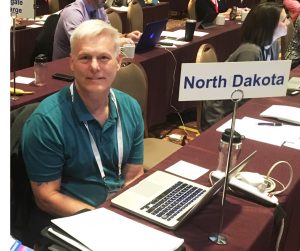
Advancing the Profession
Kroh served as president of the North Dakota Academy of PAs (NDAPA) for nearly five years. He reflects fondly on his time in that leadership role where he and his legislative committee took countless opportunities to educate legislators about the critical role of PAs.
In one of its major victories for North Dakota PAs, the NDAPA led legislators to change the state law and enable PAs to prescribe Schedule II medications without a physician co-signer. The revised law is especially beneficial to patients who see PAs in rural areas where supervising physicians aren’t always readily available to co-sign.
Now at age 58 and with a wealth of experience, Kroh continues to stay involved at the NDAPA by engaging with other members on various advocacy initiatives. But the bulk of his focus is on his practice and helping his fellow PAs.
“Eventually, you become a resource for others,” Kroh said. “Before you know it, your colleagues will be tapping you on the shoulder to ask, ‘Hey what do you think of this? Have you ever seen this before?’”
Kroh never thought he’d say the words, “Well, in my experience…,” in response to a colleague’s inquiry. But he says it happens quite often, and helping his colleagues as well as his patients is part of what he loves most about his job.
“There are times when you feel like you’re getting crushed. But there’s no more satisfying career than being a PA,” Kroh said. “I’ve had a number of jobs in my day, and I can honestly say that my worst day in the clinic is still far better than my best day at any other job.”
Dave Andrews is a freelance writer and public relations professional based in Northern Virginia. Contact him at [email protected].
More resources:
Veterans Caucus of the AAPA
Thank you for reading AAPA’s News Central
You have 2 articles left this month. Create a free account to read more stories, or become a member for more access to exclusive benefits! Already have an account? Log in.
